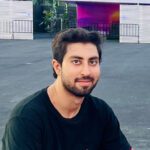Doctor of Philosophy student Chloe Yu Shu is helping to prevent eating disorders by targeting pre-diagnosed females with signs of perfectionism through an innovative online support program.
Chloe’s dedicated her PhD thesis to detecting early onset signs that can lead to depression, anxiety and eating disorders in young females. Her ‘Be-you-tiful’ four-week program helps females aged 14-19 who are struggling with unhelpful perfectionism, which is when one sets extremely high standards for themselves and chases these standards even if it leads to stress, low moods, anxiety and self-criticism.
Why did you study psychology?
Since I was quite young I really wanted to do psychology. It sparked off an interest into helping people and developed into something that I really wanted to do to make a difference to peoples’ lives.
I always had an interest in eating disorders because I had a few people in my life that have been severely affected by it. It’s quite a long-standing, chronic illness that takes a couple of years for people to get well.
What is your PhD about?
I’m doing both my masters and PhD at the moment. I’m targeting clinical perfectionism to prevent eating disorders, depression and anxiety in young females. My study shows how those who do the online perfectionism program compare, in terms of their wellbeing after one year, to someone who is doing the online stress program or someone who is being waitlisted for either programs. I’m hoping to target people who are dealing with clinical perfectionism but are not showing signs of depression, anxiety and unhealthy eating yet.
I hope my research will help people learn some skills in managing their perfectionism and stress. I think that’s something that everyone faces but no one really knows where to seek help. Usually the help comes in when it’s too late, so I want to do something that will prevent or at least reduce the impact of people suffering. So patients have early skills to learn to manage before it builds up to something really big.
It’s something quite personal that sparked my interest in psychology. I wanted to make sure people don’t suffer.
What is your goal in life?
I think it’s making a difference in a person’s life. So if I meet a person and change their life just a little, I’m happy with that. That’s always been one of my life motives. It’s something pretty small but at the same time pretty significant. I think with each day of learning I have a little bit more to give.
Can you recall a moment when you really felt like you changed a person’s life?
Last semester we were coming to an end in the clinic and I had this client who came in really, really upset and stressed about life. He had a lot of financial and court difficulties. He was really anxious and couldn’t sleep, he told me he only slept about three hours a week. I could see it in his eyes every single day when he’d come in. It looked like he was just scraping by life.
I don’t know exactly what I did and I couldn’t say I did one specific thing that changed him. But towards the end he just become this other person, his view of life had changed somehow and he started to sleep better. He thanked me for always being there for him when he didn’t know what to do with his life. I didn’t really know what I did, I couldn’t pinpoint a specific thing but I think it was just being with that person in times of need and letting them know that it’s going to be alright, I think that really helped. He hasn’t come back to the clinic, so I think he’s doing well. It made me feel so happy to know that I touched someone’s life.




